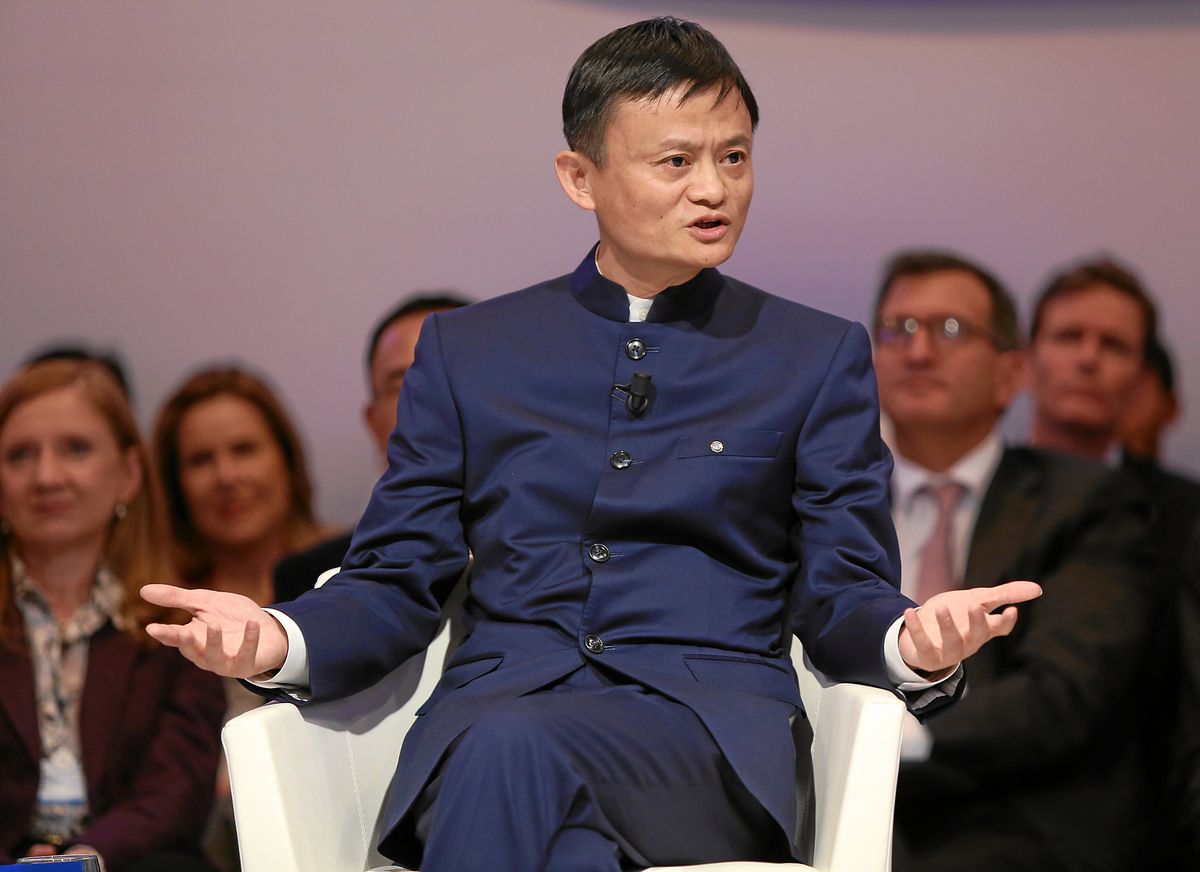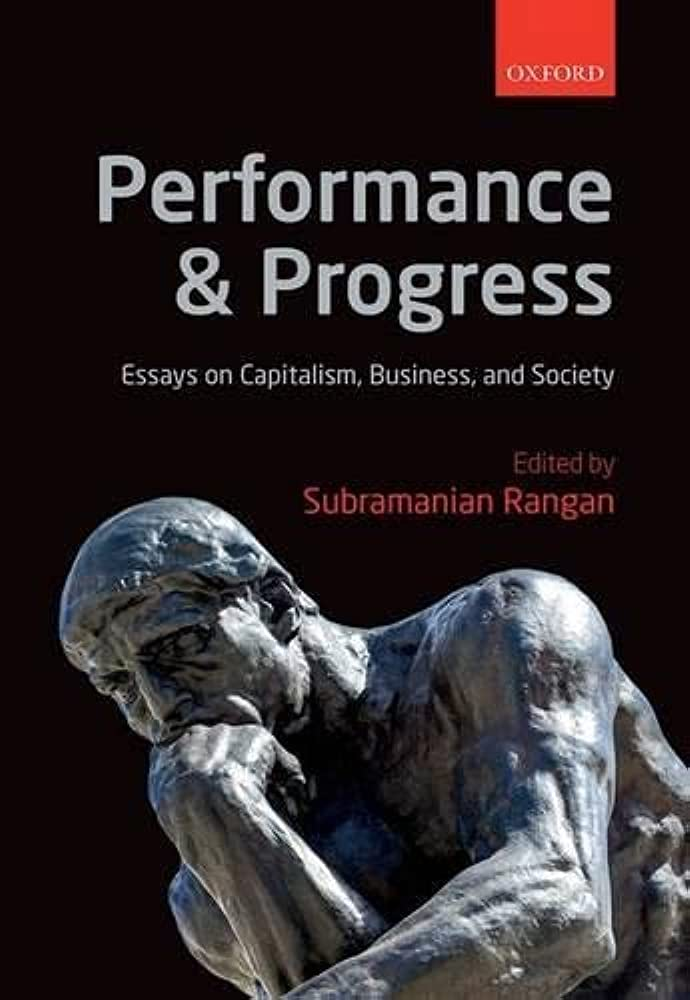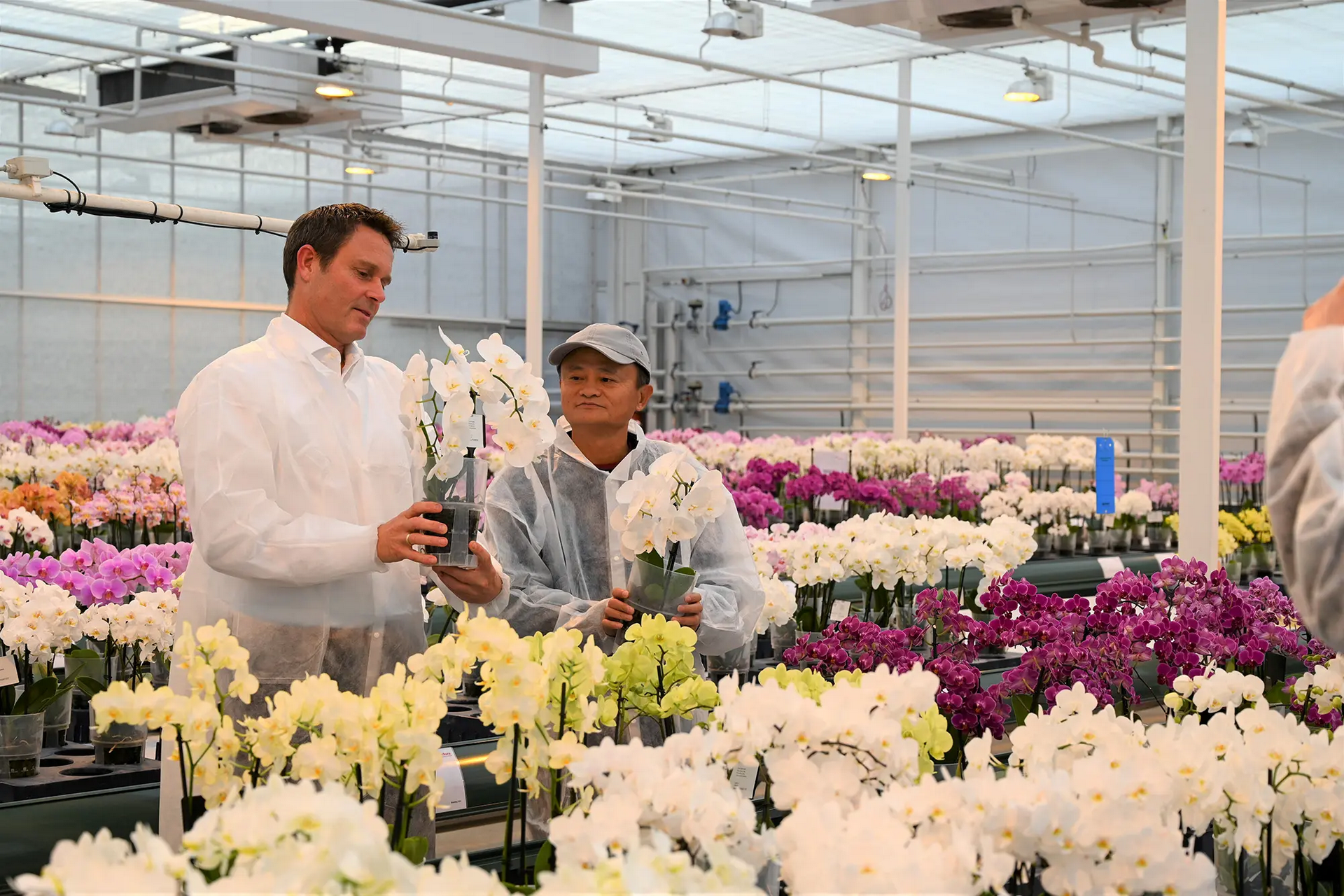Jack Ma’s return: What is ‘progress’ in China mean to Alibaba’s founder?
A 2015 essay penned by the tech titan suggests his personal philosophy may always have been an uncomfortable fit for the existing regime in China.

“Change is not teleological. It does not stop and it will not wait for you or follow your rules. It will rewrite the rules.” –Jack Ma, 2015
What does progress mean to China’s most famous entrepreneur? Alibaba founder Jack Ma has in the past discussed issues like technological change and environmentalism, but a 2015 essay penned by the business titan suggests his personal philosophy may always have been an uncomfortable fit for the existing regime in China.
The essay “An Entrepreneur's Reflections on Progress” was published as a chapter in the book Performance and Progress: Essays on Capitalism, Business, and Society, a compendium of commentary from businessmen, economists and philosophers. It shows that questions about progress have been on Ma's mind for a while, giving rise to ideas that don’t quite mesh with the messaging coming from Beijing today:
The centrality of the individual in Alibaba’s economic and organizational models is also stressed. If we are to think about better models of growth then we must aim not only for industrial progress but also for individual progress. In industrial progress the rules are predefined and people have to fit in. The future is one where enterprises will be better able to integrate individuals with different talents and styles. This is a future in which growth and progress will be more coherent.

Ma has often liked to wax philosophical in the past, and he has never given up his interest in progress. He has spoken in the past about sustainability and the impact of technological change.
Since disappearing from public view at the end of 2020, Ma has spent time overseas studying fish farming and sustainable food production. Then on March 27th, news broke that Ma had returned to China after spending about a year abroad. From the South China Morning Post:
Jack Ma, the founder of Alibaba Group Holding, returned to China recently after nearly a year of overseas travel, and visited a school he founded in the city of Hangzhou.
On Monday, Ma met teachers and students at Hangzhou Yungu School, a private school covering kindergarten to high school, that was funded by Alibaba founders in 2017, according to sources familiar with Ma’s schedule, and later confirmed by a post the school published on its WeChat account.
But agriculture isn’t the only thing that has been on Ma’s mind of late. Like much of the rest of the world these days, he is very much interested in generative artificial intelligence and the impact it could have on the future of work.
According to the post, Ma discussed with the school’s faculty the future of education in the era of rapidly developing artificial intelligence (AI) technology. “We must use AI to solve problems, not to be controlled by AI,” Ma was quoted saying
The billionaire added that technologies like ChatGPT have posed challenges for educators, and that it was only the beginning of the era of AI, according to the school’s statement. Ma, who was an English teacher before founding Alibaba, said teaching was his favourite profession and he hopes he could return to it one day.
Education is just one of many occupations that AI is expected to upend. At Alibaba, Ma has been on the forefront of technological change. His company did, after all, transform trade with China. Alibaba is now the go-to platform to source from China and find overseas manufacturers. One study estimates that in 2018, Alibaba was directly responsible for creating more than 15 million jobs and created another 25 million indirect jobs.
Many of these jobs, of course, were third-party retailers and manufacturers selling through Alibaba’s platforms. This includes its powerhouse domestic e-commerce platform Taobao.
In “An Entrepreneur's Reflections”, Ma talks about China’s transformation “from an era of IT to an era of DT (data technology)”, which is unleashing the power of the individual for more creative pursuits.
In this information age, the most important assets for production will be data and creativity, and the main challenges for firms will not be how to amass enormous quantities of capital, but how to enable people to access and unleash their creative potential with technology and data.
Despite the hullabaloo years ago about Ma being a Communist Party member, his rhetoric makes him look downright liberal compared with most of his entrepreneur peers in China. This came to a head at the end of 2020 when he gave a speech comparing state-owned banks to pawnshops, resulting in the government scuttling the highly anticipated IPO of Ant Group, owner of Alipay, China’s largest mobile payments platform.
This was the beginning of a two-year crackdown on China’s Big Tech firms. Since Beijing has started opening back up to the world as it seeks to revive economic growth, it has been courting Ma to return to the country.
Ma’s comings and goings have been of intense interest to people looking for signs that political pressure on China’s private sector might be easing.
Chinese authorities made attempts to persuade Ma — who has been traveling outside the mainland — to return and help showcase government support for the business community, according a person familiar with the matter. But Ma had chosen to stay overseas, saying he has retreated from his companies to focus on researching agriculture technology, according to people familiar with the situation, who asked not to be named because the matter is private.
Internally, Ma has told Ant and Alibaba executives not to obsess over his return to China, stressing that he is committed to their success even at a distance, the people said.
–Jack Ma Spent Months Abroad as China Sought Trust of Private-Sector Businesses | Bloomberg
Some seem to think that Ma, an inveterate deal-maker, may have come to an agreement with Beijing when he returned to the country.
While it is unclear what prompted Mr. Ma to come back to China, investors and analysts say he likely struck a deal with Beijing.
“He’s a very good deal maker,” said Jing Qian, co-founder and managing director of the Asia Society Policy Institute’s Center for China Analysis, noting that Mr. Ma could help Beijing’s wider ambitions in the battle for tech supremacy. “One thing we forgot about is that Jack is the one known for his ability to mobilize resources to innovate and to beat foreign competitors,” he added.
–Jack Ma Engineered Alibaba’s Breakup From Overseas | WSJ
It remains to be seen whether Ma still has his magic touch or whether it is powerful enough to overcome current political winds creating trade frictions between China and the West. Ma knows better than most the power of trade to transform societies. Alibaba, one of the largest e-commerce companies in the world, arrived on the scene just as China's economic transformation was taking off. It was a direct contributor to what would become the greatest reduction in poverty in human history.
The explosion of trade and economic interdependence has had another concomitant effect: reducing the likelihood of armed conflict. This was partly a design of the post-war world order, and it is something that many people have paid lip-service to, Ma included:
We are no longer simply a company; we are an ecosystem. If we can solve problems through economic development, we will not need conflict and wars to influence people and create change. We anticipate China’s broader transformation and provide what businesses and consumers need the most. We keep seeing opportunities to change not just the way business is done, but more broadly to change our society for the better. It is also true that the most challenging problems we face are not the problems of business, but the problems of society, for example, how to establish systems of trust and cooperation and how to channel innovation into production and value creation.

This world order is now under increasing pressure as tensions flare up with China. And if foreign direct investment declines in China, there are questions about whether the economy can remain as dynamic as needed for the government to achieve its goal of “national rejuvenation”.
For his part, Ma seems to already have some ideas. Before even arriving back in China, he worked from overseas to break up the company he founded into six distinct units, each with their own CEO and governance structures.
In recent months, he held calls with Alibaba’s top executives, including the current Chairman and Chief Executive Daniel Zhang, urging them to split up the company, saying it would make it more nimble and competitive in China’s increasingly crowded market, the people said.
–Jack Ma Engineered Alibaba’s Breakup From Overseas | WSJ
While often talking big about individualism and transforming society, Ma, like many of his peers, has been careful not to overtly criticize the Communist Party. Even in his 2015 essay, Ma gave some nods to his country’s nominal communist ethos:
So-called capital markets, the products of capitalist social structures, have already been discovered to have many inherent weaknesses, for example, the tension between short-term orientation of capital markets versus long-term vision needed by companies.
…
In practice, however, the most important resources for firms are various monetary forms of capital and machines of many kinds: Marx’s formulation of capitalism’s alienation of the person still holds true.
Ma is raising well-worn criticisms of capitalism, but he does not really grapple with them. It is a forced reference to Marx in an essay otherwise concerned with “economic growth and development”. He also raises the issue of transparency multiple times, something sorely lacking in the Communist Party.
We believe in equality and transparency, which are the essence of the internet. Hopefully these values will lead to the transformation of Chinese society, allowing us to leapfrog in our development of a stronger institutional and social infrastructure. When we started Alibaba fifteen years ago, we hoped that even a person from a very poor background could launch a business and live a good life through creative ideas and perseverance powered by “e-infrastructure.” We wanted to level the playing field for anyone who wants to start a business and to help the small and medium-sized company have a chance to succeed.
It seems unlikely that Ma’s return to China will bring about the change he wrote about eight years ago. Noticeably, his shakeup of Alibaba dovetails nicely with the government’s goal of keeping too much power from concentrating in the hands of Big Tech. The move falls short of breaking up Alibaba into separate companies, but it does fracture some of the vertical integration that was taking place.
Given this, the nerves of China’s wealthy may hard to calm. The tech crackdown and harsh lockdown and quarantine policies during the COVID-19 pandemic have pushed many of China’s wealthy to look for greener pastures elsewhere now that China has been opening back up to the world.
Faced with such headaches, many have been looking to leave. That was hard in 2020-21, when covid controls hit emigration. But in 2022 some 10,800 high-net-worth individuals, who have an average wealth of $6m, left the country, with the flow accelerating at the end of the year as covid controls eased. That is according to data compiled by Henley & Associates and New World Wealth, firms which track the movement of the rich. Even more are expected to leave in 2023, says Andrew Amoils of New World Wealth.
–Many wealthy people are considering leaving China | The Economist
Ma was once a harbinger for China’s economic and digital transformation. This was powered by trade, through a platform that was a catalyst for creating connections between buyers and sellers in the new digital age.
It is thus unsurprising that Ma’s vision of progress aligns with traditional notions of economic progress. But times are changing. As economic growth slows in many parts of the globe and corporate social responsibility becomes more important to consumers, questions of ethical progress in the global marketplace take on greater prominence.
Unfortunately, Ma has little to say about this topic that has huge implications for his home country.
As Beijing scrambles to retain its allure to international firms, Ma’s return to China was supposed to help signal that the country is once again open for business. But the magnate’s status, like the Chinese market, has changed. He is more international man of mystery these days than the icon of a booming Chinese entrepreneurial class.
References
Ma, Jack. “An Entrepreneur’s Reflections on Progress.” In Performance and Progress: Essays on Capitalism, Business, and Society, edited by Subramanian Rangan, 0. Oxford University Press, 2015. https://doi.org/10.1093/acprof:oso/9780198744283.003.0012.